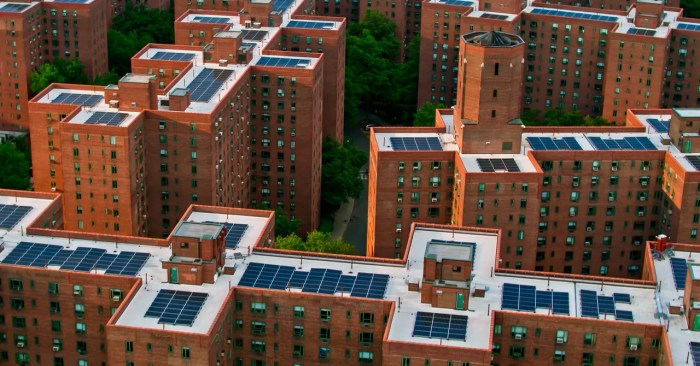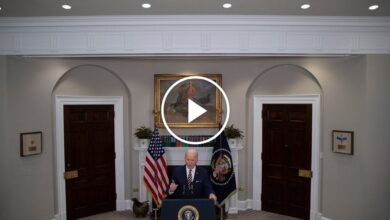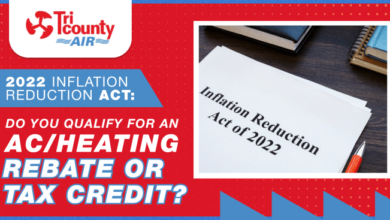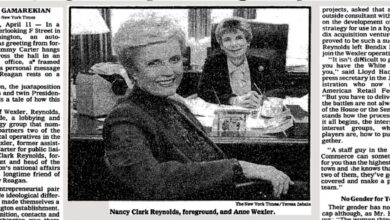
Climate and Tax Bill to Rewrite Embattled Black Farmer Relief Program
Climate and tax bill to rewrite embattled black farmer relief program – The climate and tax bill to rewrite the embattled Black Farmer Relief Program is sparking debate across the nation. This program, designed to address historical injustices and support Black farmers, has faced numerous challenges over the years. Now, with the passage of the climate and tax bill, a new chapter is unfolding for Black farmers, raising hopes for a brighter future.
This legislation promises to inject new resources and restructure the program, potentially providing much-needed relief to Black farmers who have long struggled to access land, loans, and other critical resources.
The proposed changes to the program, however, are not without controversy. Critics argue that the revisions may not go far enough to address the systemic issues that have plagued Black farmers for generations. Others fear that the changes may inadvertently create new barriers to access, further hindering Black farmers’ ability to thrive.
The debate surrounding the rewritten program is complex and multifaceted, with stakeholders from various backgrounds expressing their concerns and hopes for its success.
The Black Farmer Relief Program

The Black Farmer Relief Program is a crucial initiative designed to address the historical and ongoing injustices faced by Black farmers in the United States. It aims to provide financial assistance, legal support, and other resources to help Black farmers recover from past discrimination and rebuild their agricultural operations.
The Origins and Purpose of the Black Farmer Relief Program
The Black Farmer Relief Program has its roots in the long history of discrimination and systemic barriers that have plagued Black farmers in the United States. After the Civil War, many formerly enslaved people sought to own land and build a life for themselves through farming.
However, they faced numerous obstacles, including:
- Limited access to credit:Black farmers were often denied loans and other financial assistance, making it difficult to purchase land, equipment, and supplies.
- Discriminatory practices:Black farmers were often subjected to unfair treatment by government agencies, lenders, and other institutions, leading to the loss of land and resources.
- Lack of legal protection:Black farmers faced legal challenges and were often denied their rights to land ownership and fair treatment.
These historical injustices resulted in a significant decline in Black farm ownership, leaving a lasting impact on the economic and social well-being of Black communities. The Black Farmer Relief Program was established to address these historical wrongs and provide much-needed support to Black farmers.
The climate and tax bill’s rewrite of the embattled Black farmer relief program has sparked a lot of debate. While some see it as a step in the right direction, others argue it doesn’t go far enough. Meanwhile, Amazon is making a huge investment in the UK, building out its cloud and AI infrastructure , which will likely have a significant impact on the UK economy.
It’s interesting to see how these two seemingly disparate topics – the future of farming and the future of technology – are both shaping the future of our world.
The Embattled Program: Climate And Tax Bill To Rewrite Embattled Black Farmer Relief Program
The Black Farmer Relief Program, intended to address historical inequities and support Black farmers, has faced numerous challenges and criticisms since its inception. While the program aims to provide much-needed financial assistance and resources, its implementation has been plagued by delays, bureaucratic hurdles, and a lack of transparency, raising concerns about its effectiveness in reaching its intended beneficiaries.
Program Implementation Challenges
The program’s implementation has been marred by significant delays and bureaucratic roadblocks. The initial application process was complex and cumbersome, requiring extensive documentation and multiple rounds of review. This lengthy process discouraged many eligible farmers from applying, hindering their access to vital aid.
The climate and tax bill’s rewrite of the black farmer relief program is a hot topic, but let’s be real, we all need a little break from the seriousness. Did you see that article about Halle Berry addressing the jokes about her characters’ wigs ?
Anyway, back to the bill, it’s a complex issue with a lot of conflicting opinions. It’s crucial we discuss it thoughtfully and find solutions that benefit everyone.
Furthermore, the program’s eligibility criteria were stringent and difficult to navigate, further limiting the number of farmers who could benefit.
- Complex Application Process:The initial application process was complex and cumbersome, requiring extensive documentation and multiple rounds of review, discouraging many eligible farmers from applying.
- Stringent Eligibility Criteria:The program’s eligibility criteria were stringent and difficult to navigate, further limiting the number of farmers who could benefit.
- Delays in Processing Applications:The processing of applications was significantly delayed, further exacerbating the financial hardships faced by Black farmers.
- Lack of Transparency in Program Administration:Concerns about transparency and accountability have been raised, with questions regarding the program’s allocation of funds and the criteria used to determine eligibility.
The Climate and Tax Bill

The Inflation Reduction Act of 2022, commonly known as the climate and tax bill, is a significant piece of legislation with far-reaching implications. Among its provisions, the bill includes a revised Black Farmer Relief Program, aimed at addressing historical inequities and supporting Black farmers.
Proposed Changes to the Black Farmer Relief Program
The climate and tax bill proposes several changes to the existing Black Farmer Relief Program, seeking to enhance its effectiveness and reach. The original program, established in the 2018 Farm Bill, faced criticism for its cumbersome application process, limited funding, and inadequate outreach.
The climate and tax bill has opened a new chapter for Black farmers, offering a chance to rewrite the embattled relief program. This comes at a time when the Democrats are pushing for union support in crucial states like Minnesota, where Vice President Kamala Harris and Governor Tim Walz recently rallied for union support in a bid to secure their support.
The outcome of these efforts will undoubtedly impact the future of the Black farmer relief program, as the Democratic Party seeks to solidify its base in these key regions.
The proposed revisions aim to address these shortcomings and provide more robust support to Black farmers.
Comparison of the Original Program and Proposed Changes
The proposed changes to the Black Farmer Relief Program are significant, impacting key aspects such as funding, eligibility, and implementation.
Funding
- Original Program:The original program allocated $4 billion for debt relief and other support for Black farmers.
- Proposed Changes:The climate and tax bill proposes an additional $3.1 billion for the program, increasing the total funding to $7.1 billion. This substantial increase aims to provide greater financial assistance to a larger number of Black farmers.
Eligibility
- Original Program:The original program faced criticism for its restrictive eligibility criteria, which excluded some deserving Black farmers.
- Proposed Changes:The proposed revisions aim to broaden eligibility criteria, making it easier for more Black farmers to access program benefits. This includes relaxing some of the original program’s requirements, such as those related to farm size and income.
Implementation
- Original Program:The original program’s implementation was hampered by bureaucratic delays and a complex application process.
- Proposed Changes:The climate and tax bill proposes streamlining the application process and simplifying program administration. This includes establishing a dedicated office within the USDA to oversee the program’s implementation and ensure timely delivery of funds to eligible Black farmers.
Key Differences Between the Existing Program and Proposed Revisions
The following table summarizes the key differences between the existing Black Farmer Relief Program and the proposed revisions:
| Feature | Original Program | Proposed Revisions |
|---|---|---|
| Funding | $4 billion | $7.1 billion |
| Eligibility | Restrictive criteria, including farm size and income requirements | Broadened criteria, relaxing some original requirements |
| Implementation | Complex application process and bureaucratic delays | Streamlined application process and dedicated office for program oversight |
Potential Impacts of the Rewritten Program

The rewritten Black farmer relief program within the Climate and Tax Bill holds significant potential for impacting Black farmers across the nation. While the program aims to address historical injustices and provide much-needed support, it’s crucial to examine the potential positive outcomes as well as the challenges and risks associated with the proposed changes.
Potential Positive Impacts
The rewritten program could significantly benefit Black farmers in several ways:
- Increased Access to Capital:The program aims to provide financial assistance to Black farmers, enabling them to invest in their operations, purchase land, and acquire essential equipment, ultimately enhancing their productivity and profitability.
- Debt Relief:The program seeks to alleviate the burden of existing debt for Black farmers, allowing them to free up resources for reinvestment and growth. This could help stabilize their financial situation and prevent further economic hardship.
- Improved Access to Land:The program could facilitate the acquisition of land for Black farmers, addressing the historical challenges they have faced in securing land ownership. This could empower them to build generational wealth and establish long-term sustainability for their farms.
- Enhanced Technical Assistance:The program may provide access to technical assistance, training, and resources to help Black farmers improve their farming practices, adopt sustainable agricultural methods, and enhance their overall competitiveness.
- Increased Market Access:The program could support initiatives aimed at increasing market access for Black farmers, enabling them to connect with buyers and expand their customer base. This could boost their revenue streams and contribute to their overall success.
Potential Challenges and Risks
While the rewritten program holds promise, it also faces potential challenges and risks:
- Implementation Challenges:The successful implementation of the program requires careful planning, efficient administration, and effective outreach to ensure that Black farmers are aware of and can access the benefits offered. Delays or bureaucratic hurdles could hinder the program’s effectiveness.
- Eligibility Requirements:The eligibility criteria for the program should be carefully defined and implemented to ensure fairness and inclusivity. Overly restrictive criteria could exclude deserving Black farmers from receiving support.
- Sustainability:The program’s long-term sustainability hinges on adequate funding and continued political support. Funding cuts or changes in policy could jeopardize the program’s ability to deliver lasting benefits to Black farmers.
- Addressing Historical Discrimination:The program needs to go beyond financial assistance and address the systemic and historical discrimination that Black farmers have faced. This requires addressing issues such as land access, access to credit, and systemic bias within the agricultural sector.
Timeline for Implementation, Climate and tax bill to rewrite embattled black farmer relief program
A potential timeline for the implementation of the revised program could include the following stages:
- Phase 1: Program Design and Development (6-12 months):This phase would involve finalizing the program’s design, including eligibility criteria, funding mechanisms, and administrative procedures.
- Phase 2: Outreach and Education (3-6 months):This phase would focus on raising awareness about the program among Black farmers, providing information about eligibility requirements, and offering guidance on application procedures.
- Phase 3: Application and Review (6-12 months):This phase would involve the application process, review of applications, and selection of eligible recipients.
- Phase 4: Program Implementation and Monitoring (Ongoing):This phase would involve the disbursement of funds, provision of technical assistance, and ongoing monitoring and evaluation of the program’s effectiveness.
Stakeholder Perspectives and Reactions
The proposed changes to the Black Farmer Relief Program have sparked a range of reactions from various stakeholders, with concerns and support emerging from different sectors of the agricultural industry.
Black Farmer Organizations and Advocacy Groups
The reactions of Black farmer organizations and advocacy groups to the revisions have been largely critical. Many organizations argue that the changes will undermine the program’s effectiveness and fail to adequately address the historical and systemic inequities faced by Black farmers.
- The National Black Farmers Association (NBFA) expressed disappointment with the revisions, stating that they “fall short of the comprehensive relief needed to address the historical dispossession and discrimination that Black farmers have faced.” The NBFA has been a vocal advocate for direct payments to Black farmers and has criticized the inclusion of eligibility requirements that they believe will exclude many deserving recipients.
- The Federation of Southern Cooperatives/Land Assistance Fund (FSC/LAF) has also voiced concerns about the changes, arguing that they “will make it more difficult for Black farmers to access the assistance they need.” The FSC/LAF has been a long-standing champion of Black farmers and has worked to provide technical assistance and support to help them overcome the challenges they face.






